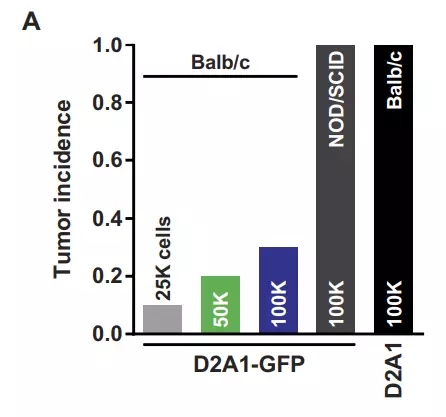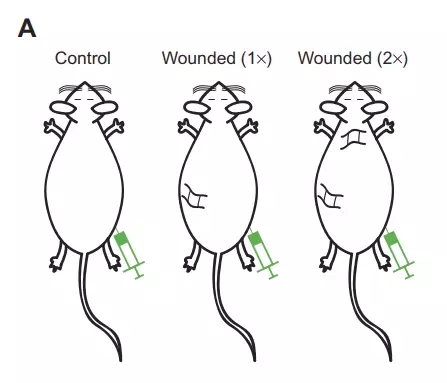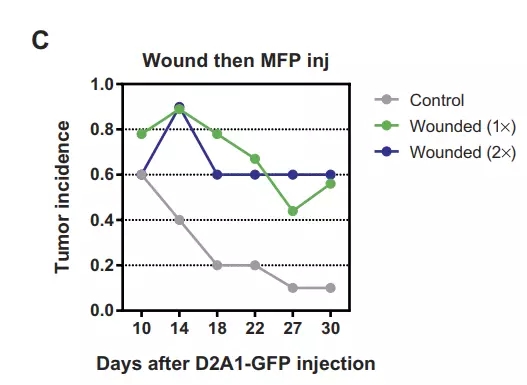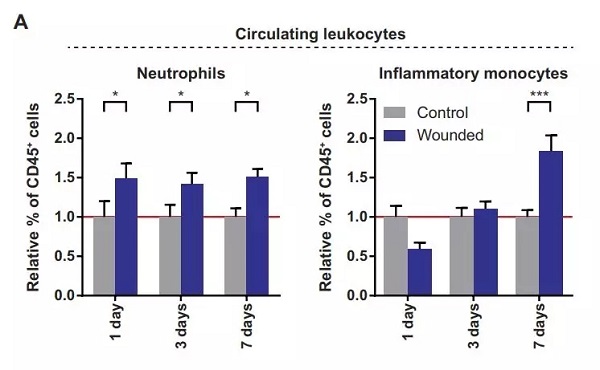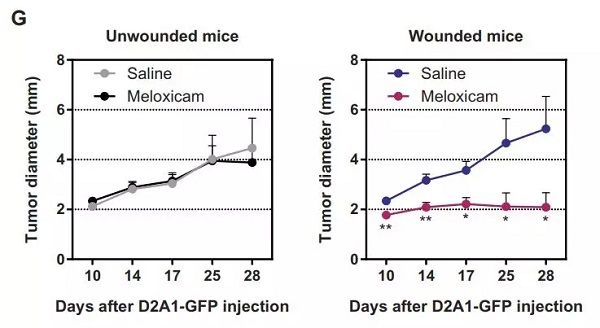Science Supplement: Is it not reliable to treat cancer? April 26, 2018 Source: Academic Jingwei Surgery has always been one of the most important therapies for cancer treatment. However, it has also been found that some breast cancer patients often have early recurrence and metastasis after surgery. What is the reason for this? Many people speculate that some of the cancer cells that fell during the operation will travel to the body with blood and promote metastasis. Others believe that the metastatic tumor has already buried Seeds in the patient's body, and the surgery just happened to wake up the sleeping tumor. Whatever the explanation, there is a logic behind it: although surgery can remove life-threatening tumors, it promotes cancer recurrence and metastasis with a mechanism that we have not yet defined. How can this not prevent the majority of cancer patients undergoing surgery? ! To better understand the impact of surgery on cancer, the team of Professor Robert Weinberg of the Whitehead Institute for Biomedical Research decided to find out. His research was published in the recent Science Translational Medicine. â–² Professor Robert Weinberg, head of the study (Source: Prof. Weinberg's laboratory website) Because they could not do experiments directly in the human body (ethical reasons), the researchers chose mice as animal models. First, they injected tumor cell lines expressing green fluorescent protein into mice to produce tumors. The researchers observed that mice with intact immunity and impaired immunity have a world of difference in tumor tolerance. After injection of 100,000 tumor cells, all mice with comprehensive immunodeficiency developed tumors, and nearly 70% of healthy mice were resistant to tumors. This result indicates that a sound immune system actually has an inhibitory effect on tumors. â–²Compated with immunocompromised mice (NOD/SCID, gray), immune-sound mice (blue) are more tolerant to tumors (Source: Science Translational Medicine) In fact, this result is exactly the same as human data. Statistics show that about 35% of women have thousands of metastatic sites in the body when they are diagnosed with breast cancer. But only half of the women will eventually turn. The remaining half of the women are lucky, and their immune system has been unable to turn over the tumor. Does the surgery affect the ability of the immune system to suppress cancer? Probably! The researchers simulated the surgery in mice. Here, they left a heart, leaving only surgical wounds in the mice, but did not really remove the tumor. In this way, if there are more tumors in the mice, we know that this is due to the surgery itself, not the cancer cells falling and spreading. â–² Researchers skillfully designed the location of the surgery and avoided the destruction of the tumor injection site (Source: Science Translational Medicine) The results of the study surprised them. In the control group without surgery, only 10% of the mice developed tumors. In the mice that underwent surgery, this number jumped six-fold and rose to 60%! The researchers also found that this phenomenon has an inevitable relationship with the immune system, because in the mice with impaired immunity, surgery does not affect the growth of the tumor. â–²In the mice undergoing surgery, the tumor incidence rate was nearly 6 times that of the control group! (Source: Science Translational Medicine) Reading here, you may be curious: the incision of the operation is not in the tumor, and it will interfere with the suppression of the tumor by the immune system. In fact, the researchers also had the same doubts and further searched for answers in the blood of mice. They found that mice with surgery had soaring levels of inflammatory monocytes in their bodies, which is consistent with clinical data in human patients. Researchers believe that these inflammatory responses are one of the main reasons why surgery suppresses the immune system and promotes tumor growth. â–²The number of inflammatory monocytes in the blood of mice has increased significantly (Source: Science Translational Medicine) The researchers point out that their research has absolutely not called for patients not to undergo surgery. Instead, they expect a better exhaustion of the potential side effects of the surgery, allowing us to better use this important conventional anti-cancer approach. For example, according to the mechanism, the researchers pointed out that some commonly used anti-inflammatory drugs may help the immune system to restore tumor suppression. Although not yet tested in humans, past medical data suggests that breast cancer patients who have used anti-inflammatory drugs after surgery have a very low probability of early recurrence and metastasis. In the mouse experiment, the effect of anti-inflammatory drugs was also verified. â–²Common anti-inflammatory drugs can help keep the immune system inhibiting cancer (red line on the right) (Source: Science Translational Medicine) Perhaps in the future, anti-inflammatory drugs will become the standard drug for postoperative breast cancer, helping to reduce the recurrence of disease in patients. From the discovery of basic science to the saving of patients' lives, this may be the charm of medical science. Reference materials: [1] The systemic response to surgery triggers the outgrowth of distant immune-controlled tumors in mouse models of dormancy [2] Perioperative NSAIDs may prevent early metastatic relapse in post-surgical breast cancer patients [3] Cancer surgery can awaken tumor cells, but in mice a cheap pill stops metastasis Vietnam'S Export Products,Sugandha Paddy Seeds,Seed Paddy,Wild Rice Seed XIKE AGRICULTURAL GROUP CO . .LTD. , https://www.laoseed.com
